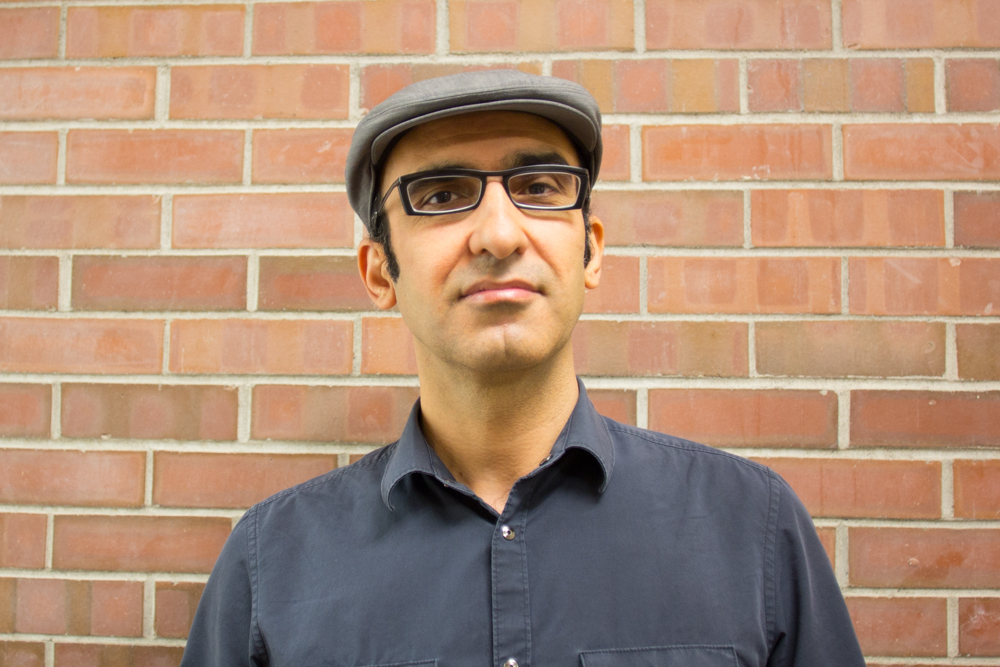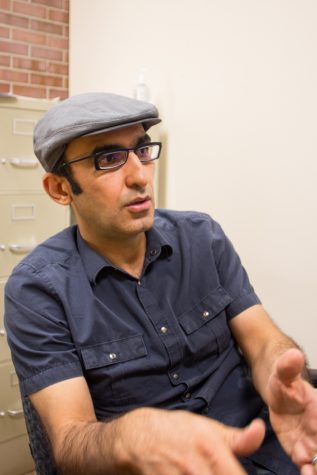Q&A with Saladdin Ahmed
September 12, 2017
Dr. Saladdin Ahmed is an O’Donell Visiting Professor from Canada. Last April, he was brought to Whitman for a two-week course called “Unpacking Racism.” This year he is teaching a politics class on Totalitarianism as well as Intro to Race and Ethnic Studies.

Q: What’s your relationship with and view of the liberal arts?
A: This is my ideal form of education because most of the problems of reification, depoliticization and presenting knowledge as apolitical, and the consequences of that, such as lack of political and ethical awareness can be direct consequences of too narrow specialization. Liberal arts gives a broad perspective of different fields, which is I think, the only way to do scholarship in both a meaningful way in your field and also in an ethically, socially and politically responsible way because then you know how what you do is contextualized in the real world.
Q: What do you want to bring to the Race and Ethnic Studies department?
A: I try to, in addition to a basic historical background, bring a couple of different questions and focuses. One is how race was perceived, normalized and conceptualized in the writings of some of the greatest thinkers of the enlightenment, so that we know race didn’t just become part of our perspectives for no reason. Also, how old versus new racism works. In the past, racism was just taken for granted but now we know race was based on pseudoscience. Does that mean racism is over or does it mean that we invented new ways that resist our means of diagnosis? Additionally, what is microaggression and how does it work? All this has to be contextualized. Racism usually comes with sexism, and so on. What are the similarities, what are the modes of thought that accept racism and sexism in the same discourse? In summary, a basic broad investigation of how racism came about, why race is a myth and how it changes techniques.

Q: What inspired you to go into this field and pursue your research?
A: On many levels, the state of the world in terms of violence–in all its forms, not just the physical–public awareness, politically, ethically and so on, is not promising. It seems hopeless. But that hopelessness must be negated once you are aware of it. If you really face it, you won’t stop and despair, you will go beyond it. To negate that hopelessness and despair consciously–not in terms of psychological denial (be happy and try not to think about it), that’s the common approach and it’s not going to do anything. No. My philosophy is that it is necessary for us to face the misery. We must know how bad and hopeless it is. It’s only after that point we can take another step and negate that hopelessness. We need to know how bad it is in order to have actual hope and actual, effective ways to change things. To me, philosophy is a way to see better, the scale of the crisis, articulate better and then go beyond it, mainly through dialectical thinking, debate and intellectual struggle.
Q: What do you most hope to achieve with your scholarly work?
A: Naming a goal would be problematic on many levels because the project should be about realizing what is happening and at the same time getting to a better position to see a different horizon. So every time you realize something, your conception of goals, solutions and alternatives should change. The goal would be exactly the same as the method, which is debate, discussion, to realize your blind spots everyday and to be able to articulate the voices of the silenced better. Not for them, but to be with them in that struggle. How can we, through debate and critical analysis, dig deeper into the structures of oppression and at the same time how can we improve ourselves, our language and be part of this force for change and progress.





